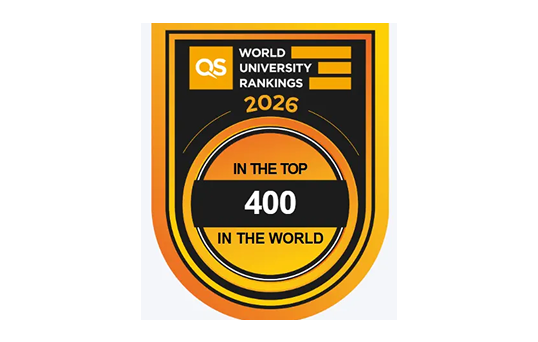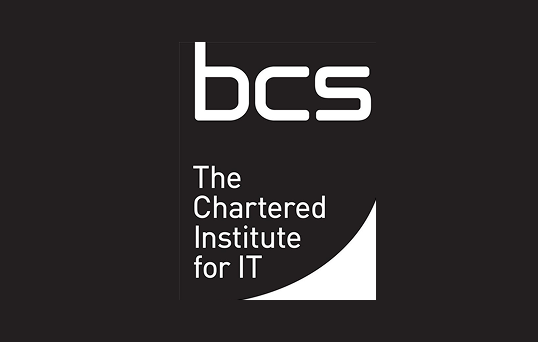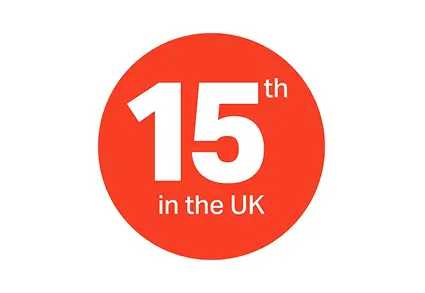

Master of Science in Computer Science
MSc (Online)
Develop your coding skills with Mobius, an advanced real-time feedback tool that accelerates your learning and sharpens your programming expertise. Learn from industry leaders through a BCS-accredited programme shaped by Aston’s Industry Advisory Board, designed to empower you to become an innovative software developer and future tech leader.

January, May, September
Apply now for any date

Funding options include UK government loans for eligible students, scholarships, and flexible payment plans. A deposit is required to secure your place

Two years (part-time)
Flexible distance learning

Total tuition: £11,000 - no hidden costs
Why choose this programme


Stand out in the global job market with a BCS-accredited degree: Gain a qualification that puts you on the path toward professional recognition, such as Chartered IT Professional (CITP) status, while also enhancing your career prospects, increasing your employability, and gaining international recognition, opening doors to opportunities around the world.
No coding experience? No problem: Start from scratch with no prior coding or A-level Maths required. We’ll take you from beginner to industry-ready, equipping you with the technical skills to thrive in the tech industry.
Industry-relevant curriculum: Learn from a curriculum designed with industry leaders, including Aston’s Industrial Advisory Board, ensuring real-world relevance.
Access to industry leaders: Get free membership to Aston’s Computer Science Industry Club, connecting you with top recruiters and tech leaders to expand your career opportunities.
Innovative learning tools: Master coding with Mobius, an interactive feedback tool that provides real-time, instructor-written feedback to refine your programming skills and accelerate your learning.
Plan your future with expert guidance: Develop a personalised career plan, refine your job search strategies, and sharpen your interview techniques with the Aston Global Advantage module.
Top-ranked institution: Aston is #15 in the UK for Computer Science – Guardian University Guide, 2026, giving you global recognition and career credibility.
Globally accessible with flexible admissions: Wherever you are in the world, Aston University Online makes higher education within reach, with flexible study, monthly payment options, and non-standard entry routes that recognise the value of varied professional and educational experiences.
Flexibility: Study anytime, anywhere—with no compulsory live lectures or fixed schedules. Focus on one module and one assessment at a time, allowing for deep learning while balancing work and personal commitments.
Supportive community: Learn within a small cohort and receive personalised support at every stage of your journey. With a globally inclusive learning environment, you’ll never feel like you're studying alone.
Meet the programme director
Welcome to the MSc Computer Science at Aston University Online. This BCS-accredited programme will equip you with the technical expertise, professional skills, and innovative mindset to thrive in today’s rapidly evolving digital world. With a focus on software engineering, information systems, and real-world problem solving, you will gain the confidence and capability to become an industry-ready professional and future tech leader.
As Programme Director, I am passionate about helping aspiring computing professionals build the skills and knowledge needed to shape the future of technology. If you are ready to take the next step in your career, this programme offers the ideal platform to achieve your ambitions.


Programme overview
Empowering you with essential computing knowledge, this Computer Science (MSc) programme is designed to shape you into a proficient software developer.
With a focus on practical applications, it enables you to leverage your academic background to create relevant computer applications.
We are committed to producing workplace-ready professionals by emphasising disciplined software development methodologies.
As an Aston Online student, you’ll enjoy free access to a vast range of journals, articles, and reports through Aston’s e-library - featuring major publishers such as Elsevier, Springer Nature, Taylor & Francis, Cambridge University Press, and Wiley.
What you will learn
- Systematic understanding of the software development process: Develop a systematic understanding of the software development process, and the associated theoretical underpinning skills needed to support sound analysis, design and delivery of technology solutions in practice.
- An understanding of IT: Through professional project work, you will gain professional experience and a wide perspective on IT.
- Software and information systems engineering capabilities: Our Computer Science (MSc) programme equips you with practical software and information systems engineering capabilities based on well-founded principles.
- Become an industry-ready professional: Gain the ability to communicate in an IT context as an industry-accredited professional. Graduate with a professional level of transferable skills.
- Respond to challenging computing problems: Effectively respond to computing challenges of the business world, and embark on a successful career in computing and IT with the potential to reach leadership roles.
Flexible payment plans and funding options

We are ranked in the top 5% of evaluated institutions
QS World University Rankings 2026
It’s been an exciting time at Aston University, with amazing new achievements that highlight our teaching excellence, outstanding student outcomes, and strong performance in global and UK rankings. Here are just a few highlights:
- Aston University is now ranked in the top 5% of global universities (top 5% evaluated institutions, QS World University Rankings).
- Aston University has been named the University of the Year for Student Success 2025 in the new Daily Mail University Guide.
- Aston University is 2nd in the country for Social Mobility (Higher Education Policy Institute).
And that’s just the beginning. Watch our video to discover more.
Computer Science is challenging and very abstract, but Aston offers so much support. I have gained several technical skills, namely, PHP, Laravel, Java, JavaFX, Ajax, Git. There are too many technologies to list out, but these are some of the few worth noting. The skills you learn in fixing broken programmes apply to everyday life.


Career prospects
Aston graduates from this versatile BCS-accredited and globally in-demand degree have achieved diverse career successes, securing roles like software developer, information security specialist, and web application developer at renowned organisations such as Red Hat and NatWest.
Many graduates have opted to further their academic journey, pursuing PhD opportunities to delve deeper into research and advanced studies. The programme's versatile curriculum and practical approach will prepare you for various professional paths.
Career prospects you can look forward to:
Software engineer: Object-oriented software design and implementation, tackling challenges in varied computing environments.
Technical analyst: Specialists in technology assessment, these professionals analyse systems and processes to boost business efficiency and technological innovation.
IT compliance consultant: Experts in regulatory frameworks ensure that organisations' IT practices adhere strictly to legal standards and industry best practices for data security and compliance.
Software developer: Creative and solution-oriented, these developers design, test, and implement software solutions, tailoring applications to meet the evolving needs of businesses and consumers.
New media programmer: Pioneers in digital innovation, they integrate multimedia and interactive elements, programming content that captivates in the digital age.
Systems analyst: Strategists in system design, they dissect business requirements to develop technical solutions that streamline and enhance organisational operations.


Programme structure
Providing a diverse range of computing skills, the Master of Science in Computer Science (MSc) Online programme develops expert working professionals who will succeed in the real world. This online programme is aligned with all contemporary industry standards as supported by the leading accreditation framework. Each credit of study is equivalent to 10 learning hours. For example, 30 credits reflect 300 hours of learning.
Modules
Object-oriented programming'%3e%3cpath%20d='M11%2013H5V11H11V5H13V11H19V13H13V19H11V13Z'%20fill='%231C1B1F'/%3e%3c/g%3e%3c/svg%3e)
30 credits
An introduction to object-oriented programming and an object-oriented approach to problem-solving. Grounded in a broad range of fundamental programming principles, you will be able to design and develop your own applications and be prepared for more specialised subsequent modules.
Algorithms and data'%3e%3cpath%20d='M11%2013H5V11H11V5H13V11H19V13H13V19H11V13Z'%20fill='%231C1B1F'/%3e%3c/g%3e%3c/svg%3e)
30 credits
Examine a range of commonly used contemporary data structures that serve to model complex real-world computing systems and the algorithms that interrogate and manipulate such structures. Additionally, develop your comprehension of database design and development concepts and challenges, equipping yourself with the practical skills to apply this knowledge in delivering the database infrastructure for information systems.
Software engineering'%3e%3cpath%20d='M11%2013H5V11H11V5H13V11H19V13H13V19H11V13Z'%20fill='%231C1B1F'/%3e%3c/g%3e%3c/svg%3e)
30 credits
Software development is examined from a systematic, disciplined standpoint. Through requirements analysis, systems analysis, design, implementation, testing, development, and maintenance, you will explore the lifecycle of a software project, alongside Unified Modelling Language (UML) tools. You will also focus on contemporary agile testing tools and methodologies that examine the quality-focused aspects of software engineering.
Software project management'%3e%3cpath%20d='M11%2013H5V11H11V5H13V11H19V13H13V19H11V13Z'%20fill='%231C1B1F'/%3e%3c/g%3e%3c/svg%3e)
30 credits
Gain experience in producing a substantial, complete software system and develop your project management and teamwork skills. A sound understanding of software project management will enable you to understand the interrelation between various phases of the development lifecycle, as well as the broader commercial context in which software development takes place.
Learning outcomes
- Demonstrate an appreciation of the commercial, economic, legal, social, ethical, professional and information security contexts in which software development occurs, acting appropriately within those contexts when specifying, designing or constructing computer-based systems.
- Conduct self-directed investigation into published work, critiquing its worth and applying findings to the development of computer-based systems.
- Integrate and apply concepts, techniques, principles, theory, and models to specify, design, construct and critically evaluate computer-based systems and possible trade-offs.
- Plan, manage, conduct, and report on a programme of work that covers multiple software lifecycle stages.
- Select, apply, organise, adapt and deploy a range of software tools and techniques effectively and safely to meet stakeholder requirements.
- Demonstrate self-direction, originality, professionalism, and autonomy in tackling and solving computing problems.
- Deploy skills and demonstrate qualities that make an effective contribution to a software development team.
- Communicate effectively to both technical and non-technical audiences, demonstrating sound decision-making skills within the constraints of technical uncertainty.
Modules
Aston global advantage and research methods'%3e%3cpath%20d='M11%2013H5V11H11V5H13V11H19V13H13V19H11V13Z'%20fill='%231C1B1F'/%3e%3c/g%3e%3c/svg%3e)
30 credits
Access a transformational opportunity to work within inclusive teams to investigate, develop, and propose a novel, digital, data-driven, entrepreneurial AI-enabled, software-based solution to a real-world business challenge and prepare you for your major project.
Major project '%3e%3cpath%20d='M11%2013H5V11H11V5H13V11H19V13H13V19H11V13Z'%20fill='%231C1B1F'/%3e%3c/g%3e%3c/svg%3e)
30 credits
You will have the opportunity to undertake a major individual project. They can be undertaken in various settings, fields and disciplines subject to meeting the intended learning outcomes, and must be consistent with the discipline studied. Through this module, you will have the opportunity to showcase your knowledge and skills from past experiences. You will produce a substantial piece of individual work that forms the capstone project of the MSc.
The programme aims to:
- Enable you to develop a systematic understanding of the software development process, and the associated theoretical underpinning and professional skills needed to support sound analysis, design, and delivery of technology solutions in practice.
- Equip you with practical software and information systems engineering capabilities based on well-founded principles.
- Develop industry-accredited professionals who can communicate in an IT context and are endowed with professional-level transferable skills.
- Prepare you to respond to the computing challenges of the business world, and for an effective career in Computing and IT with the potential to reach leadership roles.
*We may update our programmes to reflect best practices and academic developments. If we do, we’ll let you know of any changes at the earliest opportunity by updating our programme webpages. If you have already received an offer, we’ll write to you directly to let you know of the changes.
Unsure if you qualify?
Check your eligibility now or speak with our admissions team about alternative entry routes.
Is this programme right for you?
- You are a non-computing graduate looking to transition into a career in software development.
- You are interested in a flexible online learning experience that can fit around your work and personal commitments.
- You are looking for a programme that focuses on practical skills and prepares you for a successful career.
- You want to gain a strong foundation in computer science fundamentals and develop the skills to design, develop, and implement software systems.
- You want to earn a masters degree from a reputable university with a strong track record of graduate employability.
Entry requirements
We carefully design our entry criteria to ensure every student begins their academic journey with Aston Online equipped with the foundational knowledge, potential, and personal qualities needed to succeed in their chosen programme. Our standards are not merely a threshold for entry; they are set to support student success and uphold the quality of the learning experience. Each student joins an intellectually challenging, personally rewarding programme, aligned with employers' expectations and the global job market.
Standard entry requirements
You will need one of the following:
-
A UK 2:2 (lower second-class honours) degree
-
An equivalent international degree recognised by Aston University
You will also need:
-
GCSE Mathematics Grade B or equivalent
-
Proof of English language (if applicable)
You will need to provide:
-
A copy of your bachelor's degree and transcripts (translated to English if necessary)
-
Your curriculum vitae (CV)
-
A professional reference
-
Your ID
-
Proof of English language (if applicable)
*Click here for more information or contact our Admissions Team to check your eligibility: enquiries@astononline.ac.uk.
Non-standard entry routes
We take a holistic approach to evaluating applications, considering both your academic background and professional experience. If you don’t meet the standard entry requirements, you may still be considered if you can demonstrate strong professional achievements or relevant qualifications.
Requirements for applicants applying with work experience only:
-
At least three years of relevant work experience
-
A professional reference
-
Your curriculum vitae (CV)
-
A personal statement detailing your motivations for undertaking this programme and how your background, qualifications, and experiences will help you meet its demands
Requirements for applicants applying with non-standard degree qualifications:
-
An academic reference
-
Other academic qualifications: GCSE Mathematics Grade B or international equivalent
-
A personal statement detailing your motivations for undertaking this programme and how your background, qualifications, and experiences will help you meet its demands
Get in touch with a Student Advisor to check if you're eligible to enrol: enquiries@astononline.ac.uk.
International students
Every year, students from over 120 countries choose Aston, bringing with them a wide range of international degrees and qualifications. We recognise this diversity while maintaining rigorous academic standards, reflecting the global business landscape our graduates lead in.
A Student Recruitment Advisor can assess your degree equivalency on your behalf as part of the application process. You can also explore recognised qualifications by region, including Africa, the Americas, Asia, Europe, and the Middle East, here. For personalised advice before applying, contact our Admissions Team at enquiries@astononline.ac.uk.
English language requirements
Applicants whose first language is not English must provide evidence of a recognised English language qualification, taken within the last two years and accepted by Aston University. If needed, we can provide an internationally accredited online English Language Assessment, which you can discuss with your Student Recruitment Advisor during the application process.
We accept a wide range of English language qualifications, including:
-
IELTS Academic and IELTS Academic Online
-
IELTS One Skill Retake
-
TOEFL and TOEFL iBT
-
Oxford ELLT (Global and Digital)
-
Pearson Academic (PTE)
-
Password Test
-
Language Cert International ESOL SELT
-
Kaplan Test of English (KTE)
-
Cambridge Advanced Test (CAE)
-
Cambridge Proficiency Test (CPE)
Find out if you qualify
If you have any questions about your eligibility or the application process, please get in touch with the Aston Online Admissions Team:
Email: enquiries@astononline.ac.uk.
FAQs
What are the benefits of studying the Master of Science in Computer Science (MSc) online programme?
Our Master of Science in Computer Science (MSc) Online programme is tailored to empower graduates from diverse academic backgrounds with essential computing knowledge. Geared towards non-computing discipline graduates, you will be moulded into proficient software developers.
Focusing on practical application, this programme will enable you to harness your initial subject knowledge for creating relevant computer applications. With a commitment to producing job-ready professionals, our curriculum emphasises disciplined software development methodologies and effective teamwork in software projects.
How does the delivery of the Master of Science in Computer Science (MSc) online programme differ from the on-campus programme?
Our Master of Science in Computer Science (MSc) Online programme is equivalent to its on-campus counterpart. The primary distinctions lie in the benefits of online learning at Aston University. Aston Online offers a number of advantages that make it an attractive option for students worldwide, including:
- Flexibility and convenience to fit studies into work-life balance
- Interactive, engaging, and purpose-designed curriculum available 24/7
- Affordable with options to pay monthly, in instalments, or earn as you learn
- Dedicated student support and online tutors
What happens if I decide to withdraw?
If you withdraw from your studies, you may still have fees to pay. Please check the fee liability in section 4.7 of the Tuition Fee Charging Policy here.
How will I be assessed?
You will engage in a variety of regular formative and timetabled summative assessment activities, where assessment modes and formats closely mirror relevant professional and industry contexts.
- Formative assessment set by the module content will include short tasks, knowledge tests, and production of outcomes to check knowledge and competence.
- A combination of tutor-graded practical coursework assignments and projects will be used to provide a structured summative assessment for each module.
- In all assessments, you will benefit from detailed assessment rubrics provided from the beginning of the module to guide your effort and achievement.

Download brochure
Don’t hesitate to reach out! Our friendly admissions team is ready to answer your questions and offer personalised guidance on eligibility and funding options.









